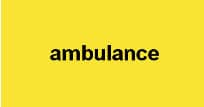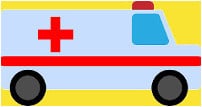In this article, I give you tips and advice for how to learn, remember and memorise new English vocabulary.
Learn new words by theme
A long list of random, unrelated words is difficult for the brain to process.
Unrelated words: clutch, dishonest, faith, petal, awkwardly, carpet

It is better and easier to learn words from the same theme.
Related words (car parts): clutch, wheel, tyre, bonnet, steering wheel, dashboard.

Learn derived words and phrases
When you learn a new word, find all the derived, related words and phrases and learn them too.
For example, you hear a new word: “curious“. You look in a dictionary and find:
(adjective)
Meaning 1: interested in learning about people or things around you.
Example: “The detective was very curious.”

Meaning 2: strange or bizarre.
“It’s curious that Mark isn’t here.”
So now you have learned the meaning of “curious”. Don’t stop there! Look for the derivatives of “curious” in the dictionary:
curiousity (noun) = The desire to learn about people or things about you.
Example: “The students have plenty of curiousity.”
curiously (adverb) = in a curious or interested way.
Example: “Who are you?” he asked curiously.
Also, look for the synonyms of “curious“:
Synonyms: suspicious, strange, bizarre.
Look for expressions, phrases and idioms with curious and its derivatives and look up their meanings:
Idiom: “Curiousity killed the cat.”
Meaning: We say this to warn someone not to ask too many questions.
As you can see, we started the process with one new word (curious) and we ended up learning an extra 5 new words and an idiom with several examples.
Review words you have already learned
When you learn a new word, it starts in our short-term memory. You must continue to review the word to transfer it to your long-term memory.

In the days and weeks after learning new words:
- Read your notes again.
- Say and write the words again.
- Do some more exercises.
- Read some material in which the words appear.
If you do not review words, you will forget them after a few days. A good English course will have regular vocabulary reviews.
Read in English
Reading is important because you will see new words in different contexts. The context also helps you remember. The context helps you understand the meaning. A story or article is more interesting than a list of words.

For example, you are reading a book and you see this sentence:
Jane doesn’t like Mark. She thinks that he is pretentious.
“pretentious” is probably a new word to you. We immediately know from the context that “pretentious” is an adjective to describe a person. We also know it means something bad or negative. We want to learn the meaning to understand why Jane doesn’t like Mark. We have a goal. It’s interesting.
The next time you see the word “pretentious“, you will remember the context and situation first. Then you will remember the meaning.
Be active
Reading is important but it is not enough to properly memorise new words. You are passive while reading. You need to be active.
Write new words in a notebook with their derivatives, synonyms and phrases. Write down example sentences for each new word. (Writing uses motor memory and this helps with recall.)

Say the new words and example sentences out loud. If possible do this with another student. Ask the other student a question. Say the new words and phrases in your questions and / or answers. We learn language by using it. Be busy and active!
Make flashcards
A flashcard is a card to learn a new word.

The new word is on one side of the card.

The definition and/or picture is on the other side.
Make the flashcards yourself. (Be active!) Don’t use cards made by someone else. There are lots of activities you can do with flashcards:
- Memory games.
- Sort them into themes.
- Combine several cards to make sentences.
More English lessons
English vocabulary: Train travel
“can afford something” | English vocabulary
Vocabulary: “besides”, “except” and “apart from”
All the English lessons and articles
English lessons on our Youtube channel




















